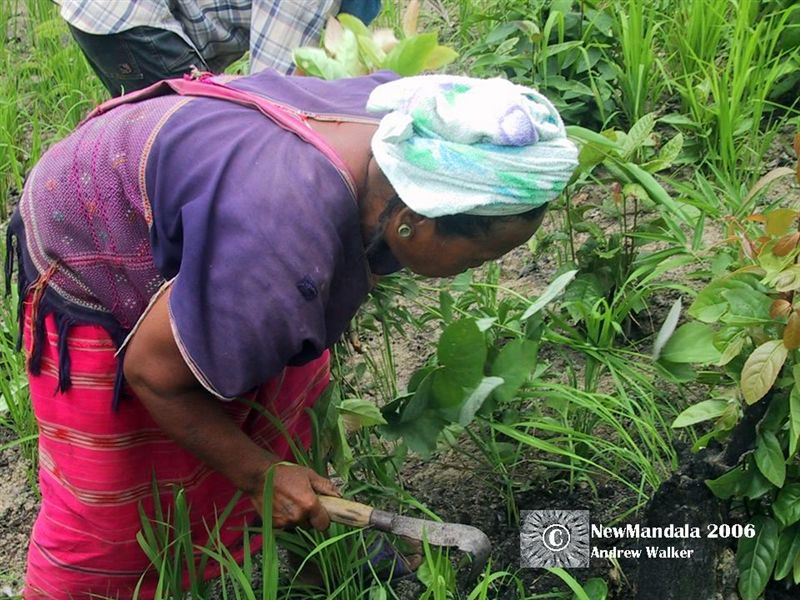Nich Farrelly has raised some interesting questions about the potential economic benefits of preserving Southeast Asian forests in the context of international carbon trading. A similar market-based approach can be seen in relation to Rewarding Upland People for Environmental Services, a “program for developing mechanisms for rewarding the upland poor in Asia for the environmental services they provide.” The goal of the program is “to enhance the livelihoods and reduce poverty of the upland poor while supporting environmental conservation on biodiversity protection, watershed management, carbon sequestration and landscape beauty at local and global levels.” A range of research and discussion papers are available on the RUPES web site.
I am very cautious about the RUPES initiative. There are several reasons for this:
- It contributes to maintaining the selective environmental focus on relatively impoverished upland cultivators. And It tends to reinforce common (lowland) perceptions and prejudices about the desirable state up upland lifestyles – low impact and forest friendly.
- It is based on very dubious science and considerable uncertainty about what environmental services actually are. (Let me leave aside the issue of carbon sequestration for a moment.) For example, many of the popular claims about the watershed benefits of upland forest protection are dubious. Forests are often seen as a source of abundant downstream water but, in fact, forests are large water users. If the desired environmental service is abundant flow into downstream irrigation and hydroelectricity reservoirs, uplanders should perhaps be rewarded for deforestation! And upland biodiversity is often in the eye of the beholder, with lowland policy makers often focussing on charismatic species that capture the public imagination. By contrast the abundant biodiversity in upland agricultural systems is often dismissed with pejorative labels such as “slash and burn” or “monocropping.”
- If carbon sequestration is an objective (and see the interesting comments on Nich Farrelly’s earlier post) why focus on uplanders? Perhaps lowlanders could bare some of the burden of preserving forests that would otherwise have been cleared or (more realistically given the extent of lowland deforestation) establishing carbon-storing plantations on their agricultural land.
- There is, I think, a real danger of backlash. Given the scientific uncertainty, combined with very significant natural variation, there is the real risk that the services for which uplanders are rewarded will not be forthcoming. What happens then? Heightened calls for monitoring and regulation in the uplands? Requests for refunds? Or even proposals to tax uplanders for their environmental disservice?
Regarding upland farmers as environmental protectors who should be rewarded may seem a very positive step. It is certainly an advance on previous portrayals of them as environmental destroyers. But perhaps it is just a flip side stereotype that, in the end, will have very similar regulatory force.
These are some preliminary thoughts. New Mandala readers are welcome to enter the fray!
 Facebook
Facebook  Twitter
Twitter  Soundcloud
Soundcloud  Youtube
Youtube  Rss
Rss 